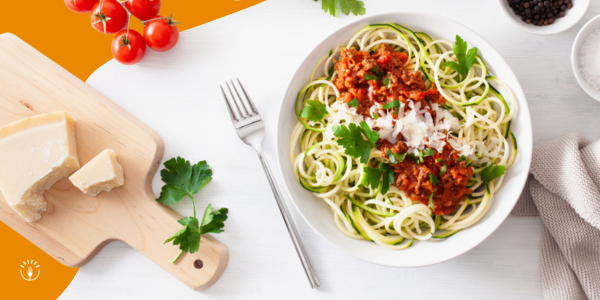
Healthy kidneys are capable of clearing more than 200 waste products created by the body following food digestion. But if kidneys become compromised, these byproducts can accumulate and cause significant damage and harm health. Nonetheless, people with kidney problems are encouraged to follow a special diet to reduce waste buildup, which likely includes these 15 foods for kidney health!
General Recommendations Concerning Foods for Kidney Health
First off, it is imperative to seek out professional guidance before starting any sort of diet, as specific recommendations vary based on individualized needs. In general, though, there are predominant nutritional considerations related to kidney function, including sodium, potassium, phosphorus, protein, and fluids:
Sodium
Sodium is sourced from table salt and often found in packaged and processed food products, including cheeses, cured meats, and boxed snacks. Damaged kidneys cannot filter excess sodium, causing its blood levels to rise and posing serious risk to the kidneys and other organs. It is often recommended to limit sodium to less than 2,000 milligrams (mg) or one tablespoon of salt per day.
Potassium
Potassium naturally occurs in fruits and vegetables, including bananas, apricots, and potatoes. Potassium plays many critical roles in the body, though too low of the mineral can be dangerous and too much cannot be filtered from damaged kidneys. Limiting potassium to less than 2,000 mg per day is commonly suggested.
Phosphorus
Damaged kidneys have difficulty removing excess phosphorus, a mineral found in a wide variety of foods, including breads, nuts and seeds, chocolate, dark colas, and dairy products. High levels can cause damage to the body, so dietary phosphorus is restricted to less than 800 to 1,000 mg per day in most patients with kidney problems.
Protein
Protein is a macronutrient people with kidney disease may have to limit, as waste products from protein metabolism cannot be cleared out by damaged kidneys. A healthcare provider can help determine your individualized needs based on kidney health and function.
Fluids
While water is critical to sustain life, damaged kidneys cannot rid extra fluid, which may cause swelling, high blood pressure, and heart failure. Depending on the stage of kidney disease and customized treatment route, fluid may need to be limited, along with potential restrictions in foods with high water content, including soups, ice cream, gelatin, and some fruits and vegetables.
15 Best Foods for Kidneys
1. Apples
You know what they say... "An apple a day, keeps the kidneys at bay." (Or something like that.) Apples are one of the best foods for kidneys related to their low potassium content, along with providing 15 delicious health benefits, including controlling and managing weight, reducing diabetes risk and cholesterol levels, and promoting digestive health.
2. Blueberries
Blueberries may be low in potassium, but they are bursting with powerful antioxidants. In addition to being a good food for kidney health, blueberries benefit the brain, fight against cancer, and improve skin complexion.
3. Cauliflower
With potatoes supplying a hefty dose of potassium, you can simply swap cauliflower to make "mashed cauliflower" (just be mindful of added salt)! However, cauliflower is not only one of the best foods for kidneys, but for overall health. In fact, the nutritional content of cauliflower scores as one of the highest on the Aggregate Nutrient Density Index (ANDI), a score assigned to whole foods that contain the highest nutrients per calorie. Cauliflower supplies a mere 27 calories per cup and is a rich source of folate, pantothenic acid, biotin, dietary fiber, and vitamins C, K, and B6.
4. Cherries
Cherries are a rich, if not the richest, fruit source of antioxidants and phytochemicals, showing to protect the kidneys by reducing inflammation in the body.
5. Cranberries
Cranberry juice is a notorious remedy for defending from a urinary tract infection (UTI) thanks to its antibacterial properties, which helps prevent bacterial growth in the digestive tract or the kidneys. Cranberries have also shown to protect against cancer and heart disease.
6. Egg Whites
Although eggs are an eggcellent source of protein, they supply approximately 95 milligrams of phosphorus per egg. And while they can certainly fit between the recommended phosphorus range, sticking to just the egg white supplies a mere 5 mg.
7. Garlic
With sodium limited in the diet, garlic can act as a natural solution to offer flavor to an array of foods. And not to mention, garlic offers anti-inflammatory properties to the body!
8. Macadamia Nuts
Whereas most nuts supply a hefty dose of phosphorus, macadamia nuts are lower in the mineral while supplying healthy fats, B vitamins, and other nutrients. But steer clear of assortments with added salt and stick to an ounce serving.
9. Olive Oil
The monounsaturated fat sourced from olive oil provides anti-inflammatory properties, which can prevent harmful inflammation and oxidation in the body. Olive oil can even assist in weight loss efforts by increasing satiety levels, along with promoting heart health and managing blood sugars.
10. Peppermints
Especially if watching fluid intake, peppermints can help relieve dry mouth (just be mindful of the added sugar oftentimes added to mints). Peppermint has further shown to relieve indigestion, alleviate skin irritation, and enhance memory!
11. Popcorn
(But without the salt and butter...) Popcorn can be a valuable option to nosh on when cravings strike, all without the worry of extra calories and phosphorus compared to other snack foods.
12. Red Grapes
Red grapes are low in potassium and loaded with a natural compound known as resveratrol. While resveratrol is well-known for its supportive role in heart health, the polyphenolic compound may help protect the kidneys.
13. Salmon
Salmon provides high-quality protein and contains those notorious healthy fats known as omega-3 fatty acids, which have shown to protect the heart, combat against cancer, and alleviate symptoms associated to rheumatoid arthritis. The American Heart Association recommends eating fish at least two times a week, including albacore tuna, herring, and mackerel.
14. Skinless Chicken
A wide variety of meats are often rich suppliers of phosphorus, salt, and fat, though going for fresh and skinless chicken can alleviate such worry and provide an appropriate dose of high-quality protein. As a general rule of thumb, stick to a 3-ounce portion to keep nutrients in check.
15. Strawberries
Like blueberries, strawberries are a berry good food for kidney health, as they are low in potassium, along with providing powerful antioxidants!







